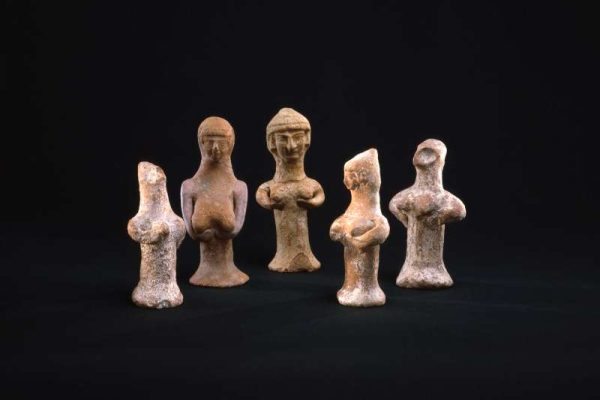Why was SarahThe first matriarch, wife of Abraham, and mother of Isaac, whom she birthed at the age of 90. Sarah, in Rabbinic tradition, is considered holy, beautiful, and hospitable. Many prayers, particularly the Amidah (the central silent prayer), refer to God as Magen Avraham – protector of Abraham. Many Jews now add: pokehd or ezrat Sarah – guardian or helper of Sarah. so cruel to HagarAbraham's concubine and the mother of Ishmael, the patriarch of Islam. In the book of Genesis, when Sarah cannot conceive, she suggests that Abraham takeher servant Hagar as a concubine in order to conceive a child, which she promptly does. Feeling threatened by Hagar and her child, Sarah convinces Abraham to banish them from their home. God saves Hagar and Ishmael from dying in the desert. and why was she so overprotective of IsaacAbraham and Sarah's much-longed-for son and the second Jewish patriarch. Isaac is nearly sacrificed by his father at God's command (Genesis 22). He is married to Rebecca and is the father of Esau and Jacob. His Hebrew name is Yitzchak.? Medieval and modern commentators have puzzled over these questions, but have never viewed them through the one lens that may not only clarify Sarah’s behavior but also makes it seem inevitable. That lens is Sarah’s infertility.
Before Hagar appears on the scene, the TorahThe Five Books of Moses, and the foundation of all of Jewish life and lore. The Torah is considered the heart and soul of the Jewish people, and study of the Torah is a high mitzvah. The Torah itself a scroll that is hand lettered on parchment, elaborately dressed and decorated, and stored in a decorative ark. It is chanted aloud on Mondays, Thursdays, and Shabbat, according to a yearly cycle. Sometimes "Torah" is used as a colloquial term for Jewish learning and narrative in general. tells us two things about her arch-rival. First, that Sarah is barren, and then, that she is beautiful. So what does it means to be barren?
An estimated 3.5 million American couples are counted among the infertile. For infertile couples, the focus of life becomes achieving pregnancy. Infertility strains friendships, finances, and one’s own marriage. The husband feels guilty because the wife is the one taking drugs and undergoing surgery. The wife may feel fury at every pregnant woman she sees on the street. Both may envy or even avoid their pregnant friends and friends with children. Those friends who do reach out, may not understand the source of longing, depression, and jealousy, or simply may not know how to respond.
Infertile couples know how lives are postponed because of the emotional stress of infertility and the imbalance of not knowing, for years on end, whether it will be just the two of them twelve months hence or a family at long last. They know what it is like to spend $15,000 on one month of infertility treatments only to getA writ of divorce. Traditionally, only a man can grant his wife a get. Liberal Jews have amended this tradition, making divorce more egalitarian. a negative pregnancy test. They know the sting of hearing people ask why they don’t just adopt, when their greatest desire in the world is to create a baby with the person they love, just like everyone else. A baby who just might reflect her mane of red curls or his big blue eyes.
A couple is defined as infertile if, after a year of trying, they have been unable to conceive. When they left Haran for Canaan, AbrahamAbraham is the first patriarch and the father of the Jewish people. He is the husband of Sarah and the father of Isaac and Ishmael. God's covenant - that we will be a great people and inherit the land of Israel - begins with Abraham and is marked by his circumcision, the first in Jewish history. His Hebrew name is Avraham. and Sarah were 75 and 65, respectively, and after living in Canaan for ten years, Sarah finally urges her eighty-five-year-old husband, whom God has promised several times over that his descendants will be as multitudinous as the dust of the earth and the stars in the sky, to adopt a child. By now, they have been trying to conceive for over half a century. Adoption was an accepted route for infertile families to build a family. Why, then, does Sarah choose this moment to urge adoption?
Sarah, I would argue, gave up on her greatest desire – to create a child with the husband she loved, a child with her hair and his eyes – for the same reason that most couples arrive at the wrenching decision to move on to adoption: she concluded that conception was not possible. At age 65, when she arrived in Canaan, Sarah was still a “dish” – so attractive and seemingly fertile that, as Abraham had feared, no sooner did the Pharaoh set eyes on her than he took her for his harem. At age 89, fourteen years after the Hagar story, Sarah is so old and dried up that the idea of her conceiving is literally laughable. After ten years in Canaan, I would like to suggest, Sarah felt herself entering menopause. She decided that if she, Sarah, could not bear Abraham the desperately sought heir, then Abraham, in accordance with the custom of the land, should take a hand-picked maidservant and she would produce an heir who would be the adopted child of Sarah and Abraham: “Consort with my maid; perhaps I shall be built up through her. And Abram heeded Sarai’s request.” (Gen. 16:2)
Now adoption, circa the 2nd millennium B.C.E., was both less and more complex than adoption today. On the one hand, finding an appropriate, willing birth mother was relatively easy. No need to agonize over the right words, the right marketing techniques to persuade an unknown, confused teenager to choose you and your spouse from among 100 other attractive desperate couples to raise her baby. No need to travel to a far-off country and place yourself at the mercy of foreign laws and unknowable risks. On the other hand, adoption in those ancient times meant putting the young and nubile birth mother in your husband’s bed and then sharing the resulting child with her forever in a complex relationship we can scarcely imagine
Clearly, this relationship sometimes worked out well; the adoptive parents and birth mother all felt themselves to be parents to the child and the adoptive parents’ marital relationship remained intact. Thus, when RachelLavan's younger daughter and Jacob's beloved wife second wife (after he is initially tricked into marrying her older sister, Leah). Rachel grieves throughout her life that she is barren while Leah is so fertile. Ultimately, Rachel gives birth to Joseph and dies in childbirth with Benjamin. Rachel is remembered as compassionate (she is said to still weep for her children), and infertile women often invoke Rachel as a kind of intercessor and visit her tomb on the road to Bethlehem. gives her maidservant Bilhah to JacobLit. heel Jacob is the third patriarch, son of Isaac and Rebecca, and father to the twelve tribes of Israel. More than any of the other patriarchs, Jacob wrestles with God and evolves from a deceitful, deal-making young man to a mature, faithful partner to God. His Hebrew name is Yaakov., she uses exactly the same key words as Sarah: “She said, ‘Here is my maid, Bilhah. Consort with her that she may bear on my knees and that through her I too may be built up ‘” (Gen. 30:4) And when the child is born, it is Rachel who names the son she clearly feels is hers, or also her son: “And Rachel said, ‘God has vindicated me; indeed, He has heeded my plea and given me a son.’ Therefore she named him Dan.” (Gen. 30:6)
Such, alas, was not how the Sarah/Hagar/Ishmael relationship got played out: “He cohabited with Hagar and she conceived; and when she saw that she had conceived, her mistress was lowered in her esteem.” (Gen. 16:4)
Hagar conceived, “mi-bi’ah rishonah,” says Rashi, “the very first time,” and having so conceived, “her mistress was lowered in her esteem.” “Hagar said,” so Rashi continues, “‘This Sarai, her private conduct is certainly at odds with her public face: she puts herself out to be a righteous woman, but she cannot really be righteous, since all these years she has not merited any children, whereas I got pregnant the very first time.'” In other words, Hagar flaunts her conception upon her first union with Abraham as proof that Sarah’s prolonged infertility was her own fault.
So after Sarah’s enduring fifty years of being “out of phase”; of counting the days each month of each year only to mourn, with each period, the child she had fantasized but had not conceived; of watching her friends and relatives effortlessly grow big with child year after year while her and her husband’s prayers and sacrifices and good deeds and uprooting themselves from everything familiar to sojourn in a foreign land availed them nothing; after finally summoning up the courage to jeopardize what must have been most precious to her – her relationship with Abraham – so that he and she could, at last, have a child; after all this, Hagar, the young Egyptian maidservant hand-picked to bear Abraham’s child, not only flaunts her pregnancy but taunts Sarah in the most wounding imaginable way: If I got pregnant right away, and you didn’t, after 50 years of trying, it’s your own fault. And this, of course, is what every infertile woman somewhere secretly believes: If only I had used the right position, chosen the right doctor, agreed to have this surgery, not had that surgery, tried longer, or started younger; if only I were a better person, then I too would have had a child like everyone else. And Sarah flies into a rage, not only because of the outrageous insult, but because she realizes that she has played her last card and lost. She can’t make her own baby and there is no way the delicate, complex birth mother/adoptive mother relationship will ever work out with Hagar. Hagar’s child will be Abraham’s child, but it will never be her child.
Ultimately, as we know, God “remembers” Sarah; Sarah conceives Isaac well after entering menopause and gives birth at age 90. Isaac’s conception is a miracle; should anything happen to him, he is quite literally irreplaceable. Though Abraham’s destiny will be played out through Isaac, emotionally he clearly has another son – Ishmael, whom he cares for and worries about. It is Sarah who has but one irreplaceable, miraculous son after a lifetime of longing and despair. It is hard to imagine how she could have been anything other than overprotective.
And what of Hagar? If Sarah’s rage is not merely understandable but justifiable, does this make Hagar bad? Clearly the Torah text thinks not. Both times that she is driven out, first by Sarah’s harsh treatment when she is pregnant and then after Isaac is weaned, she is saved by her own angel sent by God to protect her and her son, and promised that her son, too, will father a nation. For Hagar is not bad; she is young, she is powerless, she is like the young women we employ as caregivers for our children, who often view us not as people like themselves with problems, but as wealthy, privileged, powerful beings, who control their lives.
From the Torah’s perspective, which is to say, from God’s, there is no guilty party in the story of Sarah and Hagar. Only a saint would have failed to explode when Sarah did, and the matriarchs were not saints. As for Hagar, the young and powerless maidservant, the emotional impact of infertility eludes her, as it does most bystanders, even those with far more life experience than she.












